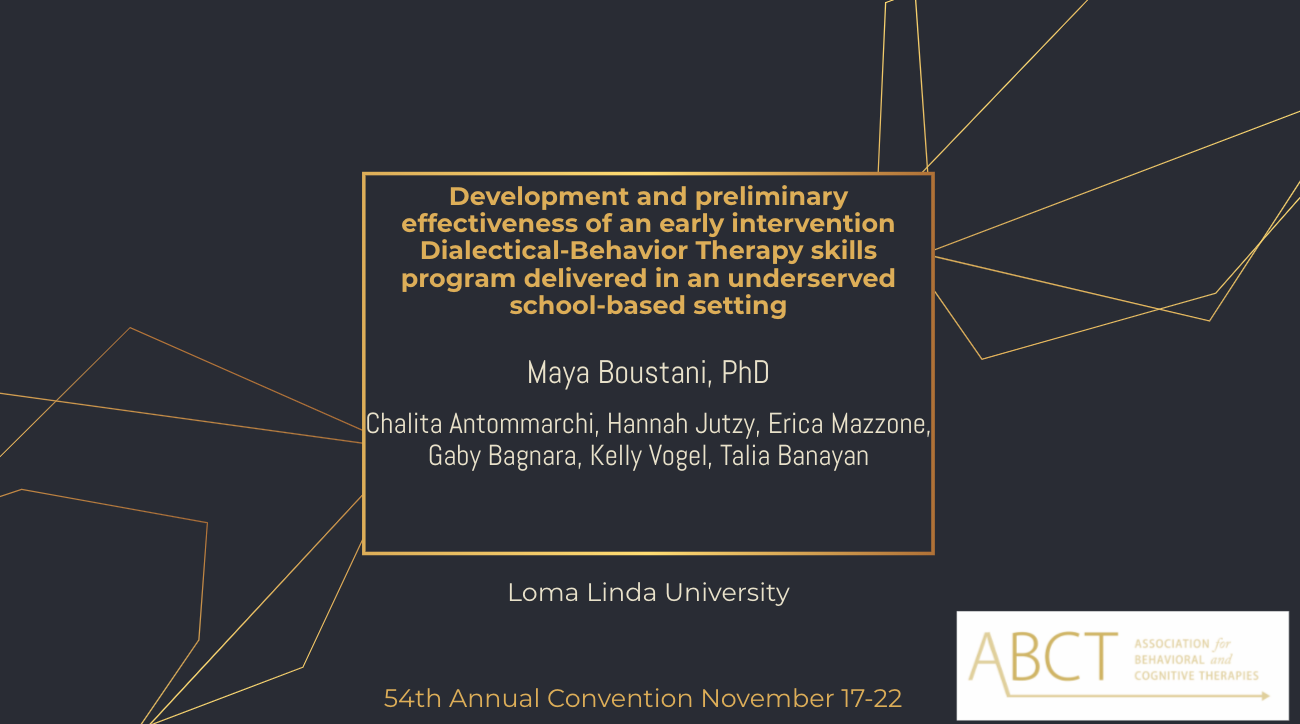Development and preliminary effectiveness of an early intervention Dialectical-Behavior Therapy skills tier 2 program delivered in an underserved school-based setting.

Background: While evidence of the effectiveness of DBT for adults grows, less is known about its effectiveness for adolescents. Although there is a lack of randomized controlled trials of delivery of DBT within an adolescent population, quasi-experimental studies of DBT with adolescents indicate that it may be effective for treating presenting problems in this age group such as borderline personality disorder (Cook & Gorraiz, 2016), oppositional defiant disorder (Nelson-Gray et al., 2006); bipolar disorder (Goldstein, Axelson, Birmaher, & Brent, 2007); and eating disorders (Salbach-Andrae, Bohnekamp, Pfeiffer, Lehmkuhl, & Miller, 2008). More recently, DBT skills have been taught in the context of prevention programming, and have demonstrated some promise thus far (Burckhardt et al., 2018). Given the role of emotional regulation in psychopathology, teaching core DBT skills may be a useful strategy to prevent and/or manage the same symptomology that it successfully treats in adulthood (i.e., suicidal behavior, non-suicidal self-injury, mood disorders, bipolar disorder, and eating disorders). This feasibility trial, thus, seeks to understand if we can effectively teach DBT skills in the context of a tier 2 intervention for at-risk teens in a school setting.Methods: Participants are 13 adolescents with a mean age of 16.5 year and of diverse backgrounds (54% Latinx, 23% Black, 15% multi-racial, 8% other race). They live in an under-served community and present with a number of risk factors including history of abuse, violence or abandonment (15%), family history of mental illness (31%) and family history of drug use (23%). Youth are referred by the school counselor to participate in the group and must not have active self-harm or suicidal ideation. The group consists of 12 sessions of core DBT skills: mindfulness, interpersonal relationships, distress tolerance, and emotion regulation. Results: Preliminary findings indicate that the intervention is feasible in a school-based context. Participants report enjoying the workshops (100%), that the activities are well presented (93.6%) and engaging (87.1%). They further report that the facilitators are well-prepared (96.8%) and that questions are answered clearly (87.1%). Outcome data collection is underway and will be presented during the talk. Preliminary symptom monitoring indicates a drop in symptomatology after the first session as measured by self-report using the Youth Outcomes Questionnaire.
Keywords: Dialectical Behavior Therapy, School mental health, at-risk adolescents



